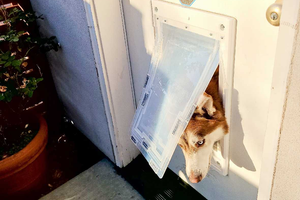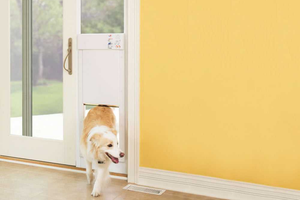How to Prevent Cat Hairballs

The month of April was full of random holidays, but at the end of this month, we are also celebrating Hairball Awareness Day and World Veterinary Day. This is a time to highlight the importance, cause, effect and prevention of hairballs for your furry feline.
Q&A
Q: Why do cats get hairballs?
A: Hairballs are a “normal” byproduct of a cat's fastidious grooming routine. As your cats licks and cleans itself, it catches loose hairs that then gets trapped and collected into hairballs.
Q: My cat doesn't get hairballs. Why is that?
A: The formation of hairballs are very common in outdoor cats. However, with the change to having indoor cats, hairballs are not as prevalent due to: consistent temperatures, inconsistencies with light cycles, nutrition, hormones, and grooming from owners.
Q: How long does it take for a cat to pass a hairball?
A: This depends on the cat and the breed. Long-haired cats could struggle more than others when coughing up hairballs. The important thing is to give them space, quiet, and water while they work through it.
Q: Can hairballs be harmful to my cat?
A: They can cause serious health issues requiring veterinary care:
- Ongoing vomiting, gagging, retching or hacking without producing a hairball
- Lack of appetite and Lethargy
- Constipation (intestinal blockage may have taken place)
- Diarrhea
- Bloated abdomen
Fortunately, there are 3 simple ways to prevent hairballs in Cats.
Be Diligent About Grooming
Pick a schedule to groom your cat and stick with it. Cat’s lick themselves to groom, frequently brushing your cat’s coat will mean there are fewer loose hairs they can accidentally swallow. When cats aren’t groomed regularly they are more likely to have these loose hairs licked and swallowed into hair clumps in their stomach and eventually regurgitated as hairballs.
Visit your local pet store to purchase a dedicated grooming brush. You can also take grooming a step further by purchasing a Cathole Cat Door. Many Cathole products are specifically designed with a brush on the outer edges to collect excess hair as the cat passes through their pet door. It’s an ingenious way to help with consistent grooming.
If you need a more standard cat flap, don't forget to check out our full collection of cat doors.
Keep Your Cat Hydrated
Keep multiple bowls of clean, fresh water around your house. Cats need sufficient water in their systems to help flush out ingested hair. If you encourage them to drink more, their hair will be less likely to collect and clump together in their stomach.
It is also helpful to keep the extra bowls of water separate from their food. In general, cats are less likely to drink water where their food is located, and they might be inclined to drink more water if there are more bowls throughout your house as well.
Try Specially Formulated Cat Food and Medicinal Hairball Treatments
There are several specially formulated hairball cat foods that will help aid in hairball control. Some of these brands include Eukanuba, Friskies, Hill’s Science Diet, and Iams. Don’t forget to consult your veterinarian before committing to change your cat’s food as sudden food changes can sometimes contribute to upset stomachs.
In more severe or frequent occurrences you may also consider giving your cat hairball remedy like Petromalt or Laxatone, or hairball medicine for cats that struggle with it on a daily basis.
If none of these tips help in preventing the hairballs in your indoor cats, it might be time to take a trip to their veterinarian because it could be a larger medical issue.




